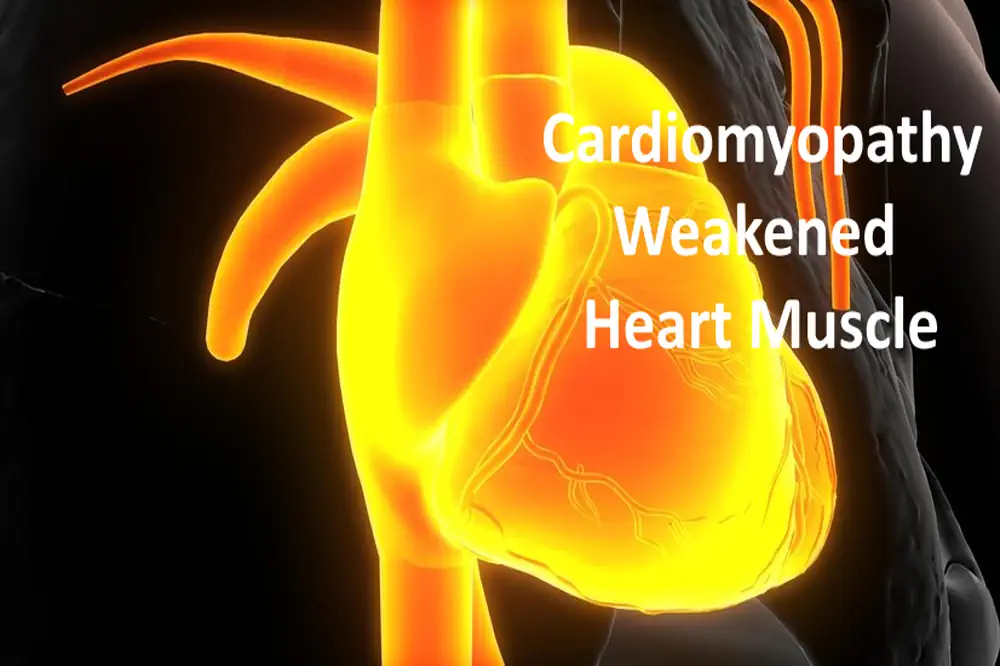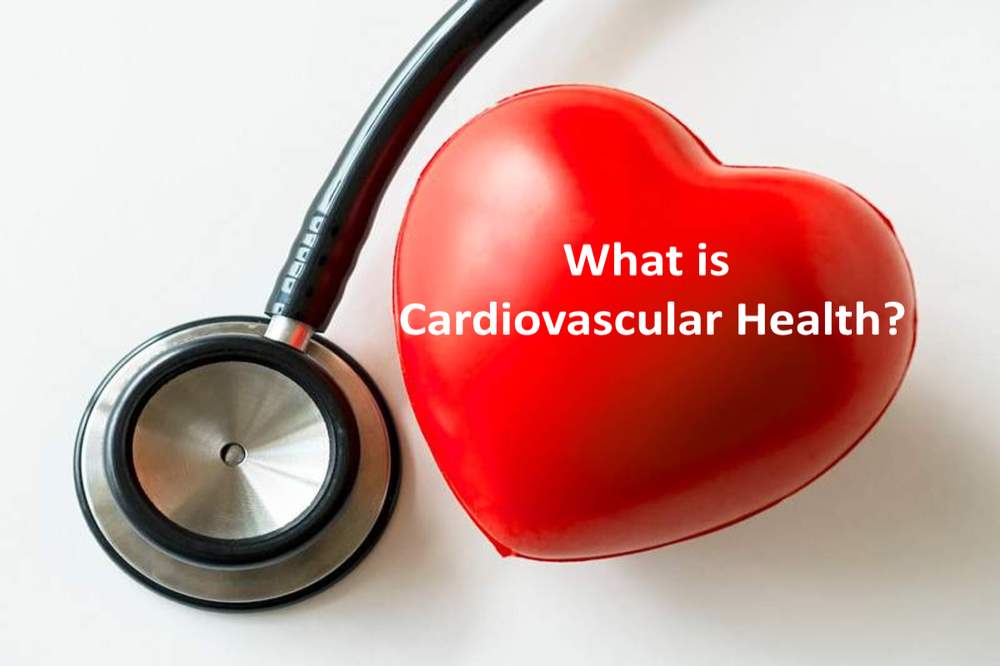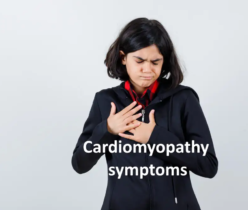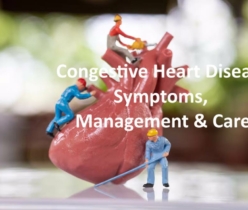Cardiomyopathy is a serious heart condition where the heart muscle weakens progressively, leading to impaired heart function and various health complications. Understanding the nature, causes, and management of cardiomyopathy is crucial for those affected and their caregivers.
Key Takeaways
- Cardiomyopathy involves the weakening of the heart muscle, impacting its ability to pump blood efficiently.
- It can be caused by genetic factors, underlying health conditions, or in some cases, the cause may be unknown.
- Symptoms often include fatigue, shortness of breath, and irregular heartbeats, which necessitate early detection.
- There are several types of cardiomyopathy, including dilated, hypertrophic, and restrictive, each affecting the heart differently.
- Effective management includes medical treatments, lifestyle adjustments, and ongoing care to mitigate complications.
Understanding Cardiomyopathy

Definition and Overview
Cardiomyopathy is a group of diseases that affect the heart muscle, leading to a decreased ability to pump blood effectively. Cardiomyopathy may be caused by genetic factors, or underlying health conditions, or may be idiopathic (of unknown cause).
Progression of the Disease
The disease typically progresses from a state of weakened heart muscle to more severe complications such as heart failure or irregular heartbeats. Early detection and management are crucial to slow the progression.
Impact on Heart Function
Cardiomyopathy significantly impairs the heart’s function, reducing its efficiency in circulating blood throughout the body. This impairment can lead to symptoms like fatigue, dizziness, and shortness of breath, which worsen over time.
Causes of Cardiomyopathy

Genetic Factors
Cardiomyopathy often has a genetic basis, with numerous mutations identified that can lead to the condition. Genetic predisposition is a significant factor, making some individuals more susceptible to developing cardiomyopathy than others.
Health Conditions Leading to Cardiomyopathy
Various health conditions can precipitate cardiomyopathy, including:
- Coronary artery disease
- Autoimmune diseases like connective tissue diseases
- Infections affecting the heart muscle
- Diabetes and thyroid diseases
- Conditions like sarcoidosis and amyloidosis
These conditions highlight the complexity and the multifactorial nature of cardiomyopathy causes.
Unknown Origins
In many cases, the exact cause of cardiomyopathy remains elusive. Research continues to uncover why some individuals develop this heart condition without any clear genetic or health-related reasons. This uncertainty underscores the need for ongoing research and surveillance to better understand and manage cardiomyopathy.
Symptoms and Early Detection

Common Symptoms
Cardiomyopathy often remains undetected in its early stages, as it might not present any symptoms initially. However, as the disease progresses, symptoms such as unexplained fatigue, breathlessness, and palpitations become more apparent. Recognizing these signs early can be crucial for effective management.
- Unexplained fatigue
- Breathlessness with mild exertion
- Palpitations
- Light-headedness
- Fainting
- Chest pain
Importance of Early Detection
Early detection of cardiomyopathy is essential for preventing severe complications. It hinges on recognizing subtle signs that might otherwise be overlooked. Early intervention can significantly alter the disease’s progression, improving the quality of life and survival rates.
Misdiagnosis and Its Risks
Misdiagnosis of cardiomyopathy can lead to inappropriate treatments that may not address the underlying heart condition. This can exacerbate the patient’s health and delay proper care. It’s vital to differentiate cardiomyopathy from other similar symptoms of heart conditions to ensure accurate treatment plans are established.
Types of Cardiomyopathy
 Cardiomyopathy manifests in various forms, each affecting the heart muscle differently and requiring unique management approaches.
Cardiomyopathy manifests in various forms, each affecting the heart muscle differently and requiring unique management approaches.
Dilated Cardiomyopathy
This is the most common form, where the heart’s main pumping chamber, the left ventricle, is enlarged and weakened. This enlargement impairs the heart’s ability to pump blood efficiently, leading to symptoms such as shortness of breath, fatigue, and swelling.
Hypertrophic Cardiomyopathy
Characterized by thickened heart muscle, particularly the ventricles, hypertrophic cardiomyopathy can obstruct blood flow and strain the heart. It often goes undetected until it causes serious complications, including sudden cardiac death.
Restrictive Cardiomyopathy
The least common type, restrictive cardiomyopathy, involves the stiffening of the heart muscle, preventing the ventricles from filling properly with blood. This stiffness can lead to heart failure and other severe cardiac conditions.
Note: Each type of cardiomyopathy may require different treatment strategies, ranging from medications and lifestyle changes to surgical interventions.
Diagnosis and Treatment Options

Diagnostic Techniques
Your doctor may perform various diagnostic procedures to confirm the diagnosis of cardiomyopathy, especially if you’re planning to have surgery. These procedures may include echocardiograms, MRI scans, and blood tests to assess heart function and structure.
Medical Treatments
When possible, the cause of cardiomyopathy is treated directly. Treatments often include medications to manage symptoms of heart failure, angina, and abnormal heart rhythms. In some cases, procedures or surgeries may also be used to help the heart work better and relieve symptoms.
Lifestyle Adjustments and Care
Managing cardiomyopathy involves significant lifestyle changes. Your healthcare provider may recommend dietary adjustments, physical activity, and stress management techniques. These changes aim to slow down the disease’s progression and improve quality of life.
Complications and Risks

Heart Failure
Heart failure is a significant risk for individuals with cardiomyopathy as the heart’s ability to pump blood effectively diminishes. This can lead to fluid buildup in the lungs and extremities, causing difficulty breathing and swelling.
Irregular Heartbeats
Patients with cardiomyopathy often experience arrhythmias, or irregular heartbeats, which can complicate the condition further by increasing the risk of stroke or sudden cardiac arrest.
Other Health Complications
Cardiomyopathy can also lead to a variety of other health issues, including stroke, heart valve disease, and cardiac arrest. Preventative measures and regular monitoring are crucial to managing these risks.
Note: Early detection and management of cardiomyopathy are vital to prevent these severe complications.
Living with Cardiomyopathy

Daily Life Adjustments
Living with cardiomyopathy involves making several lifestyle adjustments to manage the condition effectively. Key recommendations include:
- Achieving and maintaining an ideal weight for your height and age.
- Eating a heart-healthy diet, particularly reducing sodium intake.
- Exercising regularly, though it may be tiring, it’s crucial for heart health.
- Limiting alcohol intake and managing stress effectively.
- Quitting smoking, as it significantly impacts heart health.
Support Systems
Having a strong support system is vital for individuals with cardiomyopathy. This can include family, friends, healthcare providers, and support groups. These networks provide emotional support, practical advice, and can help in maintaining the necessary lifestyle changes.
Long-term Management Strategies
Cardiomyopathy requires ongoing management to slow disease progression and maintain quality of life. Regular visits to a healthcare provider are essential to monitor the condition and adjust treatments as needed. Adhering to prescribed medications and lifestyle adjustments plays a critical role in managing the disease long-term.
Conclusion
Cardiomyopathy, a progressive disease of the heart muscle, poses significant health risks as it weakens the heart’s ability to pump blood effectively. Understanding its causes, which range from genetic factors to lifestyle and other health conditions, is crucial for effective management and treatment. Symptoms such as dizziness, shortness of breath, and fluid retention necessitate prompt medical attention to prevent severe complications like heart failure. With proper treatment and follow-up care, individuals with cardiomyopathy can manage their condition and improve their quality of life. It’s essential to recognize the signs early and consult healthcare professionals to tailor a treatment plan that can slow the disease’s progression.
Frequently Asked Questions
What is cardiomyopathy?
Cardiomyopathy is a disease that affects the heart muscle, known as the myocardium, causing it to weaken, enlarge, or thicken. This results in the heart’s inability to pump blood effectively throughout the body.
What causes cardiomyopathy?
Cardiomyopathy can be caused by genetic factors, coronary artery disease, heart attacks, or other health conditions like hyperthyroidism or alcohol use. In some cases, the cause may be unknown.
What are the common symptoms of cardiomyopathy?
Common symptoms include weakness, dizziness, shortness of breath, high blood pressure, and fluid retention or edema.
How is cardiomyopathy diagnosed?
Cardiomyopathy is diagnosed using a range of techniques including medical imaging, blood tests, and cardiac stress tests to assess heart function and structure.
What are the treatment options for cardiomyopathy?
Treatment options vary based on the type and severity of cardiomyopathy but may include medication, lifestyle adjustments, medical procedures, and in severe cases, heart transplantation.
What are the risks associated with cardiomyopathy?
Risks include heart failure, irregular heartbeats, and other complications such as affecting the lungs, liver, and other body systems due to decreased heart function.





